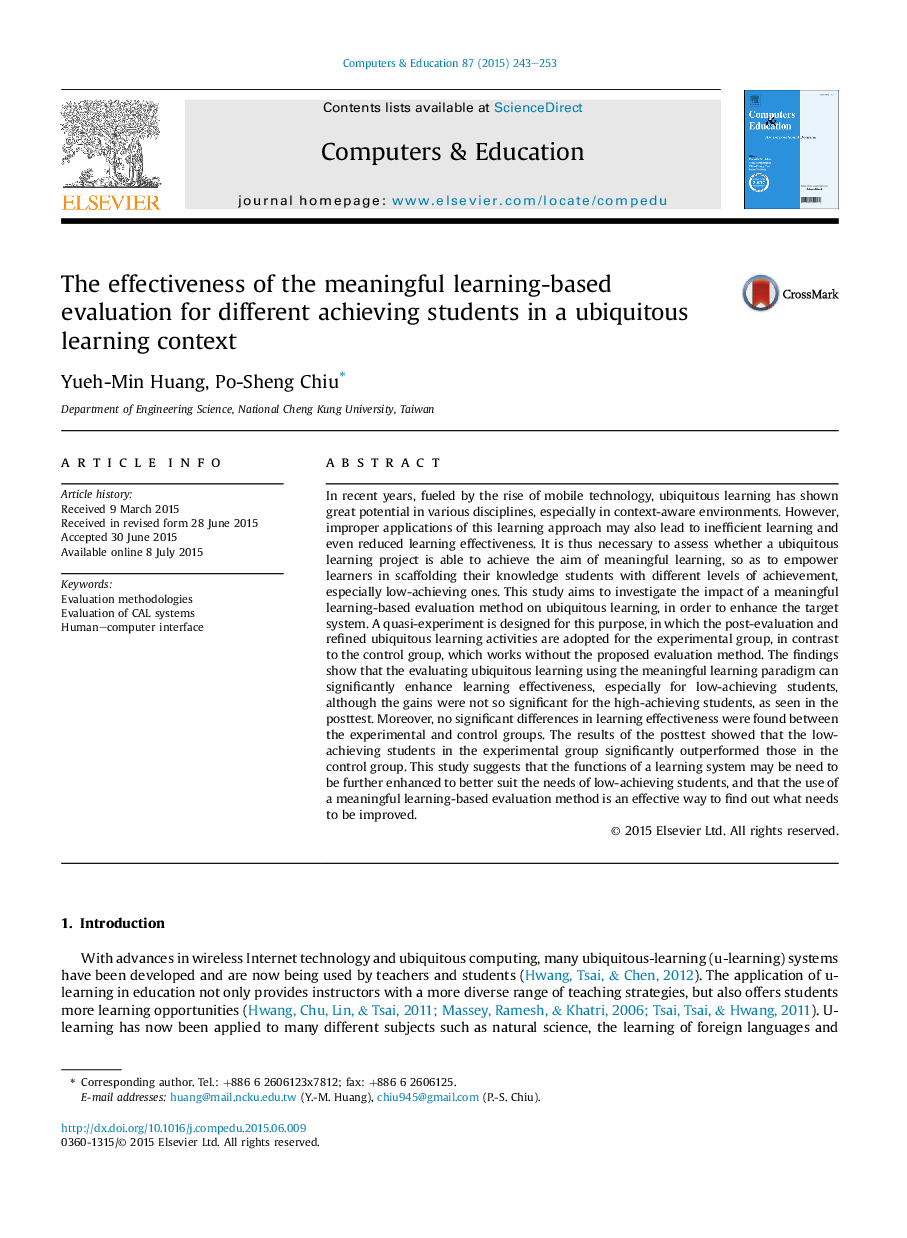| Article ID | Journal | Published Year | Pages | File Type |
|---|---|---|---|---|
| 6835044 | Computers & Education | 2015 | 11 Pages |
Abstract
In recent years, fueled by the rise of mobile technology, ubiquitous learning has shown great potential in various disciplines, especially in context-aware environments. However, improper applications of this learning approach may also lead to inefficient learning and even reduced learning effectiveness. It is thus necessary to assess whether a ubiquitous learning project is able to achieve the aim of meaningful learning, so as to empower learners in scaffolding their knowledge students with different levels of achievement, especially low-achieving ones. This study aims to investigate the impact of a meaningful learning-based evaluation method on ubiquitous learning, in order to enhance the target system. A quasi-experiment is designed for this purpose, in which the post-evaluation and refined ubiquitous learning activities are adopted for the experimental group, in contrast to the control group, which works without the proposed evaluation method. The findings show that the evaluating ubiquitous learning using the meaningful learning paradigm can significantly enhance learning effectiveness, especially for low-achieving students, although the gains were not so significant for the high-achieving students, as seen in the posttest. Moreover, no significant differences in learning effectiveness were found between the experimental and control groups. The results of the posttest showed that the low-achieving students in the experimental group significantly outperformed those in the control group. This study suggests that the functions of a learning system may be need to be further enhanced to better suit the needs of low-achieving students, and that the use of a meaningful learning-based evaluation method is an effective way to find out what needs to be improved.
Related Topics
Social Sciences and Humanities
Social Sciences
Education
Authors
Yueh-Min Huang, Po-Sheng Chiu,
